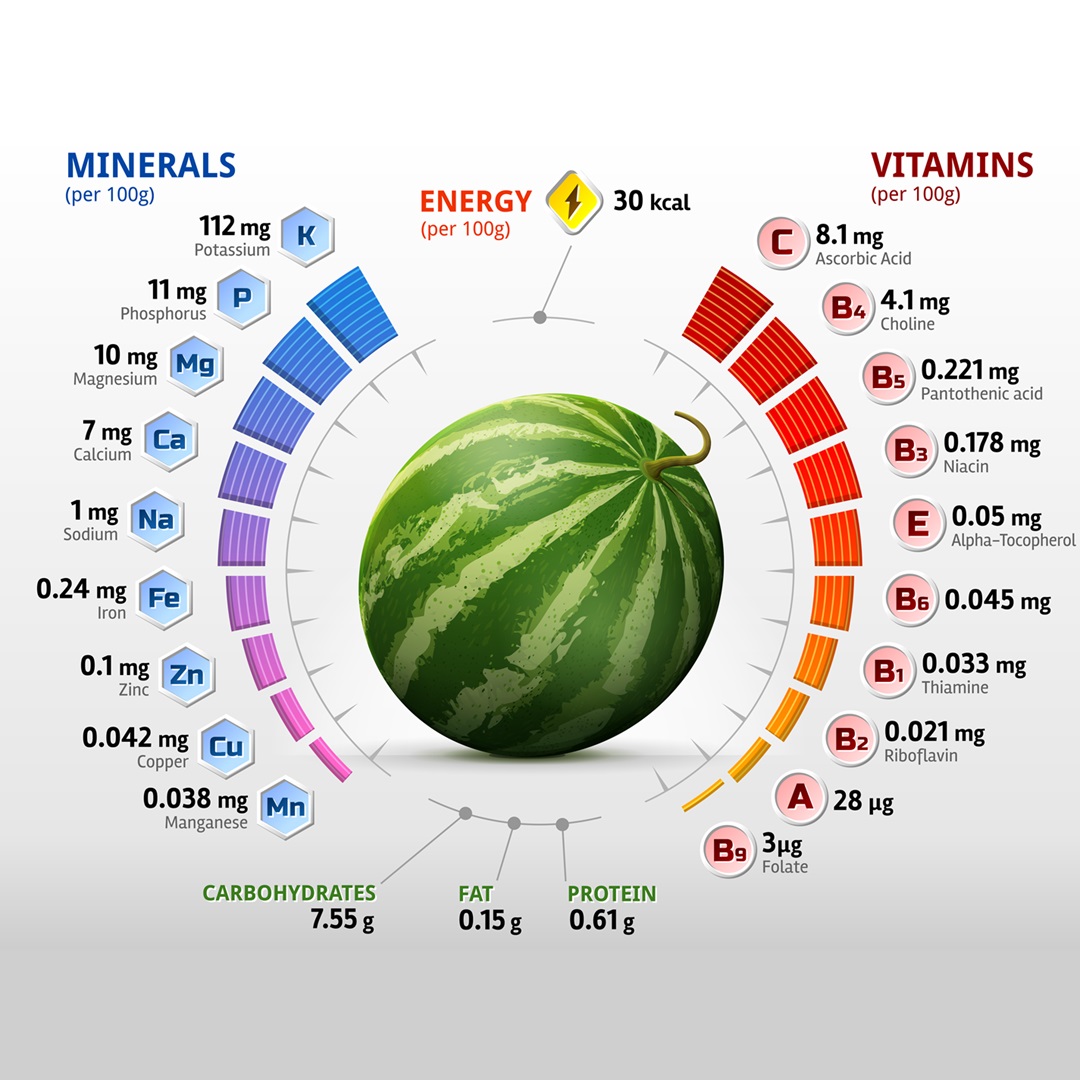by Stephen Luther, M.D.
Share

As the summer sun blazes, nothing quite compares to the refreshing bite of a juicy watermelon. This seasonal favorite not only helps beat the heat but also packs a punch when it comes to health and wellness benefits. From hydration to heart health, watermelon is a nutritional powerhouse that deserves a spot in your diet year-round. With the myriad health and wellness benefits of watermelon, this fruit is more than just a summertime treat.
The Nutritional Power of Watermelon
Watermelon is often lauded for its high-water content, comprising about 92% of its weight. This makes it an excellent choice for staying hydrated, especially during hot weather. But there’s more to watermelon than just water; it is rich in essential nutrients that contribute to overall health.
Nutrient Breakdown
- Vitamin C: Boosts the immune system and promotes healthy skin.
- Vitamin A: Essential for eye health and immune function.
- Antioxidants: Contains lycopene and beta-carotene, which help fight free radicals.
- Potassium: Supports muscle function and cardiovascular health.
- Magnesium: Important for nerve function and muscle relaxation.
Comparison with Other Fruits
While many fruits offer a range of nutrients, watermelon stands out because of its high lycopene content. Lycopene is a powerful antioxidant that gives watermelon its red color and has been linked to numerous health benefits, including reduced risk of certain cancers and heart disease. When compared to other hydrating fruits such as cucumbers and oranges, watermelon provides a broader range of essential vitamins and minerals.
Health Benefits
Hydration
Given that watermelon is composed mostly of water, it is one of the best fruits for keeping you hydrated. Staying well-hydrated is essential for maintaining body temperature, joint lubrication, and overall cellular function.
Heart Health
Watermelon is rich in compounds that benefit heart health. Lycopene, in particular, has been shown to help reduce cholesterol levels and blood pressure. Additionally, the potassium in watermelon helps to balance electrolytes, which is crucial for heart function.
Digestion
Watermelon contains a small amount of fiber, which aids in digestion by adding bulk to stool and promoting regular bowel movements. Its high-water content also helps to keep the digestive tract moving smoothly.
Anti-Inflammatory Properties
The antioxidants found in watermelon, such as vitamin C and lycopene, possess anti-inflammatory properties. These compounds can help reduce oxidative stress and inflammation in the body, aiding in the prevention of chronic diseases.
Disease Prevention
Emerging research suggests that the antioxidants in watermelon may play a role in reducing the risk of certain cancers, particularly prostate cancer. Lycopene and beta-carotene are both known to help neutralize harmful free radicals, thereby reducing the risk of cell damage and disease.
Wellness Benefits
Skin Health
The vitamins and antioxidants in watermelon contribute to radiant skin. Vitamin C assists in the production of collagen, a protein that keeps the skin supple and firm. Additionally, the hydrating properties of watermelon help maintain skin elasticity and prevent dryness.
Weight Management
Watermelon’s high-water content makes it a low-calorie, filling snack. It can help you feel full without consuming a lot of calories, making it an excellent choice for those looking to manage their weight. Its natural sugars also provide a sweet treat without the added caloric burden.
Muscle Soreness
Athletes and fitness enthusiasts may find watermelon particularly beneficial for post-workout recovery. Watermelon contains an amino acid called citrulline, which has been shown to reduce muscle soreness and improve exercise performance.
Overall Well-Being
Beyond its specific health benefits, watermelon contributes to overall well-being by providing a refreshing, delicious way to consume essential nutrients. Its natural sweetness can also serve as a healthier alternative to sugary snacks, helping to curb cravings and promote a balanced diet.
Culinary Uses and Recipes
Watermelon is incredibly versatile and can be incorporated into a variety of dishes, from salads to smoothies. Here are some of our favorite ways to enjoy this nutritious fruit:
Watermelon Salad
Combine diced watermelon with feta cheese, mint leaves, and a drizzle of balsamic glaze for a refreshing summer salad.
Watermelon Smoothie
Blend watermelon chunks with a splash of coconut water and a handful of spinach for a hydrating, nutrient-packed smoothie.
Watermelon Salsa
Mix diced watermelon with red onion, jalapeño, cilantro, and lime juice for a sweet and spicy salsa that pairs perfectly with grilled fish or chicken.
Watermelon Popsicles
Puree watermelon with a touch of honey and freeze in popsicle molds for a healthy, cooling treat.
Watermelon Gazpacho
Blend watermelon with tomatoes, cucumber, red bell pepper, and a hint of garlic for a refreshing twist on the classic cold soup.
A Nutritional Powerhouse
Watermelon is more than just a tasty summer fruit; it is a nutritional powerhouse that offers a plethora of health and wellness benefits. From boosting hydration and heart health to aiding in weight management and muscle recovery, watermelon deserves a prominent place in your diet.
Remember, staying hydrated and nourished with natural, wholesome foods such as watermelon is key to maintaining a healthy lifestyle. So next time you’re at the grocery store, don’t forget to pick up this amazing fruit and enjoy all the benefits it has to offer.





